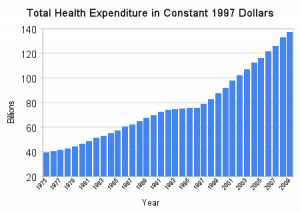
George Dumont hospital in Moncton. The Canadian government spends approximately $20 million a year on health care for asylum seekers. (Stu Pendousmat)
Immigration Canada released statistics on health care spending for refugee claimants yesterday to bolster its case that the recent scaling back of free health care for asylum seekers was necessary.
The statistics show that refugee claimants from Mexico, Hungary, Columbia, the United States and Jamaica, all countries that do not have a record of human rights abuse and persecution, received millions of dollars worth of Canadian health care services for free through the Interim Federal Health Program (IFHP), and proportionally more than asylum seekers from any other country.
Immigration Canada’s data shows that health care costs for 8,819 Mexican asylum seekers came to $7 million last year, for 6,749 Hungarians to $4.4 million, for 4,583 Columbians to $2.6 million, for 3,790 Americans to over $1.4 million and for 809 Jaimaican asylum seekers to $808,000.
Almost all of the claimants from these countries end up not attending their refugee hearings, withdrawing their refugee application, or having their claim rejected by the Immigration and Refugee Board (IRB) of Canada.
Immigration Minister Jason Kenney said that this made it necessary to reduce the range of free health care services provided to asylum seekers to prevent abuse of Canada’s refugee system.
“That does underscore the reasons why we’ve reformed the Interim Federal Health Program. There’s no doubt that it has been a draw factor for many false asylum claims,” commented Mr. Kenney.
Under changes to Canada’s Refugees System with the enactment of Bill C-31 on June 11th, free pharmaceutical, vision and dental care for refugee claimants was eliminated, which supporters of the cuts argue is fair as none of these services are available to Canadian citizens through Medicare.
The extent of the abuse of the Interim Federal Health Program was highlighted by Minister Kenney as he cited interviews Canada Border Service agents have conducted with some Hungarian asylum seekers when they were withdrawing their applications for refugee status, in which the claimants admitted that they had come to Canada to receive free dental care for their children, and now that they had gotten it, there was no reason to stay.

